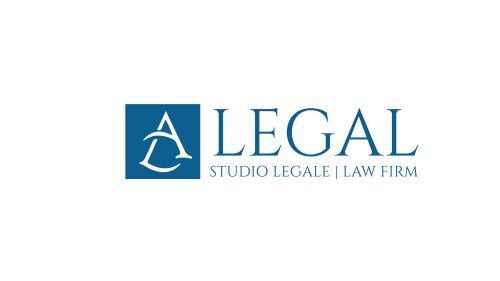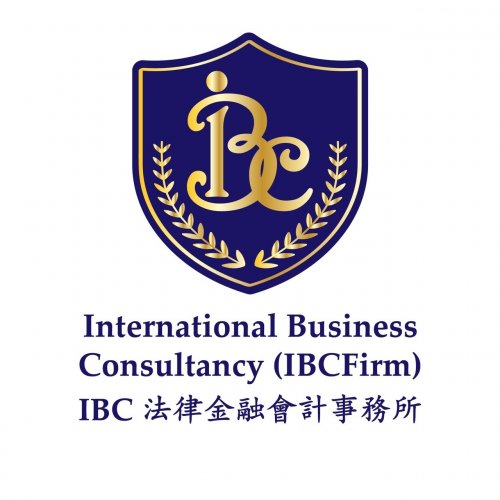Best Debt Capital Markets Lawyers in Thailand
Share your needs with us, get contacted by law firms.
Free. Takes 2 min.
Or refine your search by selecting a city:
List of the best lawyers in Thailand
Legal guides written by SIAM LEGAL INTERNATIONAL:
- Defamation Laws in Thailand: Criminal Charges and Civil Suits
- The State of Thailand’s Long-Term Resident (LTR) Visa Program in 2025
- The Penalties Of Not Filing Your Income Tax Return As A Foreigner In Thailand
About Debt Capital Markets Law in Thailand
Debt Capital Markets (DCM) in Thailand refer to the ecosystem where various instruments, such as bonds, debentures, and notes, are offered and traded to raise debt capital. Both corporate issuers and the government use DCM to finance operations, infrastructure, and development projects. The Thai DCM has witnessed significant growth due to a maturing economy, regulatory development, and increasing participation from both domestic and foreign investors. The process involves complying with intricate regulations supervised by Thai authorities, especially the Securities and Exchange Commission (SEC) and the Bank of Thailand (BOT).
Why You May Need a Lawyer
Navigating Thailand's Debt Capital Markets involves sophisticated procedures and strict regulatory requirements. You may need a legal professional if you:
- Plan to raise capital by issuing bonds, debentures, or other debt securities
- Need assistance in drafting and registering disclosure documents with the SEC
- Are a foreign issuer or investor seeking access to the Thai DCM
- Require advice on complying with exchange listing standards
- Are involved in the restructuring or refinancing of debt instruments
- Face regulatory inquiries, investigations, or enforcement actions
- Seek guidance on taxation, cross-border transactions, or currency controls
- Require due diligence for mergers, acquisitions, or other complex financial arrangements involving debt instruments
A lawyer experienced in DCM ensures your interests are protected, reduces legal risks, and helps you achieve your financial goals within the legal framework.
Local Laws Overview
Thailand's Debt Capital Markets are regulated by a network of laws and authorities, with the primary governance provided by the Securities and Exchange Act B.E. 2535 (1992) and related subordinate legislation. Here are key aspects:
- The SEC is responsible for the regulation and supervision of debt securities offerings, disclosures, and market conduct
- Issuers must submit a registration statement and prospectus to the SEC before offering debt securities
- The Thai Bond Market Association (ThaiBMA) governs market rules, bond registration, and information dissemination
- Rules exist for both public offerings and private placements, with stricter requirements for public distributions
- Foreign issuers and investors face additional requirements, including approvals from the Bank of Thailand for certain cross-border transactions
- The Civil and Commercial Code and Bankruptcy Act contain provisions affecting rights and remedies related to debt securities
- Exchange listing rules, such as those of the Stock Exchange of Thailand (SET), apply to listed debt instruments
- Ongoing disclosure and reporting obligations exist for issuers to ensure transparency and investor protection
These laws aim to maintain market integrity, foster investor confidence, and balance the interests of issuers and investors.
Frequently Asked Questions
What is considered a debt security in Thailand?
Debt securities typically include bonds, debentures, and notes that oblige the issuer to repay a specified sum to investors, often with interest, within a set timeframe.
Who regulates the Thai Debt Capital Markets?
The Securities and Exchange Commission (SEC) of Thailand is the primary regulator, supported by the Thai Bond Market Association (ThaiBMA) and the Bank of Thailand for certain transactions.
What are the basic requirements to issue bonds in Thailand?
Issuers must prepare and file a registration statement and prospectus approved by the SEC, meet eligibility criteria, and comply with any listing requirements if the bonds are to be traded on the exchange.
Can foreign entities issue debt securities in Thailand?
Yes, but foreign issuers must meet additional approval conditions, may face restrictions on currency and repatriation, and are subject to both SEC and Bank of Thailand rules.
What is the difference between public offerings and private placements?
A public offering is made to the general public and is subject to comprehensive disclosure and approval requirements. Private placements are offered to a limited group of qualified investors and generally involve simplified processes.
What role does the Thai Bond Market Association (ThaiBMA) play?
ThaiBMA maintains registration and depository for debt securities, sets market standards, provides reference data, and monitors transaction compliance among market participants.
Are there restrictions on who can invest in Thai debt securities?
Certain limitations apply, especially for foreign investors and unqualified retail investors, depending on the product and placement type. Institutional and accredited investors have greater access.
What are the ongoing obligations for debt security issuers?
Issuers must provide periodic financial disclosures, notify the SEC of material changes, and ensure continuous compliance with applicable regulations.
How are debt securities taxed in Thailand?
Interest income received from debt securities may be subject to withholding tax. Specific tax rates and exemptions can vary, so it is advised to consult with a tax specialist for your particular circumstances.
What should I do if I face regulatory action or investor complaints?
It is important to consult a qualified lawyer immediately to understand your rights, respond appropriately, and minimize potential penalties or reputational damage.
Additional Resources
If you seek more information or need to contact relevant authorities and associations, the following resources can be helpful:
- Securities and Exchange Commission (SEC) of Thailand - Oversees all aspects of securities offerings and market conduct
- Thai Bond Market Association (ThaiBMA) - Provides market data and regulatory guidance for debt instruments
- Bank of Thailand - Regulates foreign investment, currency rules, and certain cross-border aspects
- Stock Exchange of Thailand (SET) - Listing information for publicly traded debt securities
- Thai Ministry of Finance - Policy oversight and certain government-related instruments
- Professional legal and financial associations offering support in capital markets matters
Next Steps
If you need legal assistance with Debt Capital Markets in Thailand, start by gathering all relevant documentation related to your objectives or issues, such as business licenses, offering documents, or investor communications. Identify your specific questions or concerns, whether related to regulatory compliance, issuance, investment, or dispute resolution.
Seek out reputable law firms or legal professionals with specialized experience in Capital Markets. Consult with them to assess your situation, discuss possible legal strategies, and understand your rights and obligations. Acting promptly, especially in situations involving regulatory deadlines or potential disputes, will help protect your interests and provide the assurance needed to engage in Thailand's dynamic Debt Capital Markets.
Lawzana helps you find the best lawyers and law firms in Thailand through a curated and pre-screened list of qualified legal professionals. Our platform offers rankings and detailed profiles of attorneys and law firms, allowing you to compare based on practice areas, including Debt Capital Markets, experience, and client feedback.
Each profile includes a description of the firm's areas of practice, client reviews, team members and partners, year of establishment, spoken languages, office locations, contact information, social media presence, and any published articles or resources. Most firms on our platform speak English and are experienced in both local and international legal matters.
Get a quote from top-rated law firms in Thailand — quickly, securely, and without unnecessary hassle.
Disclaimer:
The information provided on this page is for general informational purposes only and does not constitute legal advice. While we strive to ensure the accuracy and relevance of the content, legal information may change over time, and interpretations of the law can vary. You should always consult with a qualified legal professional for advice specific to your situation.
We disclaim all liability for actions taken or not taken based on the content of this page. If you believe any information is incorrect or outdated, please contact us, and we will review and update it where appropriate.
Browse debt capital markets law firms by city in Thailand
Refine your search by selecting a city.
















